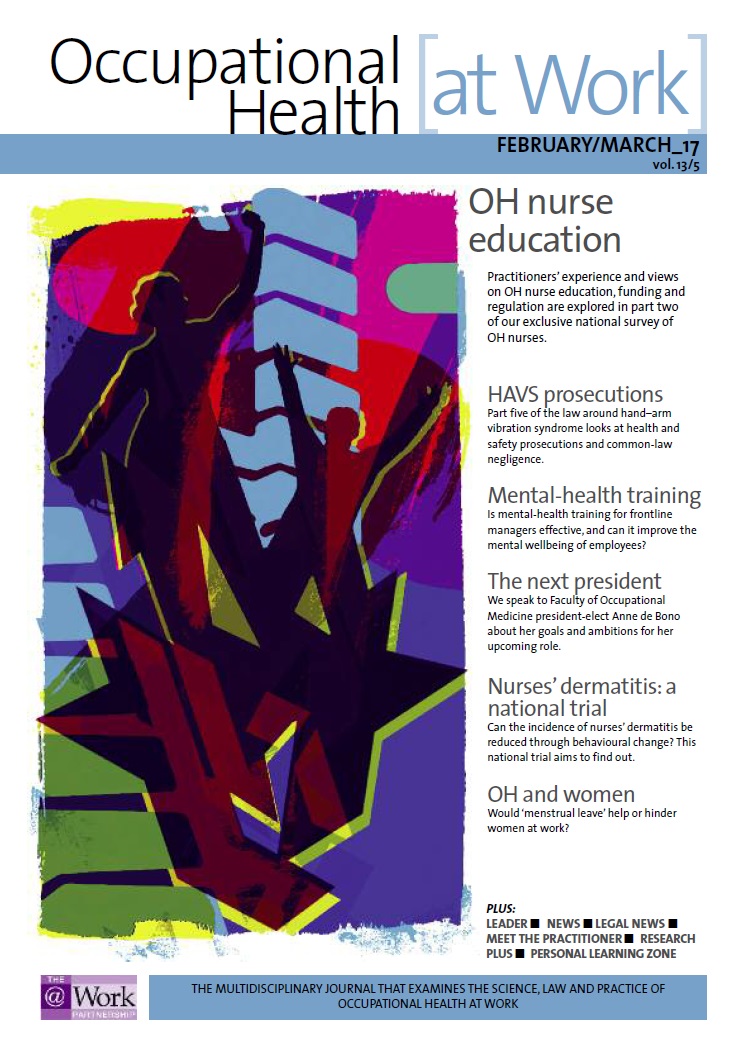February/March 2017 (vol. 13/5)
ContentsFeaturesNewsLegal
NewsResearch DigestResearch PlusCPD
Research Plus
Night nurses’ increased mortality risk
Older nurses working night or evening shiftwork had an increased risk of all-cause mortality and death from cardiovascular disease (CVD) and diabetes, but not cancer, this nationwide Danish cohort study found. More than 23,000 nurses aged over 44 years were recruited in 1993 and 1999 to the Danish Nurse Cohort study. They provided information on current working patterns, lifestyle and health factors. Mortality data was obtained from the national death register. The analysis included 18,015 nurses, with a mean follow-up of 17.6 years (316,644 person-years) – 1,616 nurses died during the follow-up period. Working nights (hazard ratio (HR) = 1.26, CI 1.05–1.51) or evenings (HR = 1.29; CI 1.11–1.49) were associated with increased all-cause mortality when compared to working days. Nightshift work was associated with deaths from CVD (HR = 1.71; CI 1.09–2.69) and diabetes (HR = 12.0; CI 3.17–45.2) but not with all-cancer or psychiatric disease mortality. There were strong associations between evening (HR = 4.28; CI 1.62–11.3) and rotating (HR = 5.39; CI 2.35–12.3) shiftwork and mortality from Alzheimer’s disease and dementia, but no association between rotating shiftwork and all-cause or all-cancer mortality. No associations were found for breast cancer mortality – 90% of nurses in Denmark have worked night shifts at some point in their careers, and exposure to night or shiftwork when younger may be more important for this disease. This research looked at working patterns only at the time of recruitment to the study cohort (ie when aged over 44 years).
Scandinavian Journal of Work Environment & Health 2016; online first: doi: 10.5271/sjweh.3612
Occupational Health at Work February/March 2017 (vol. 13/5) pp42



